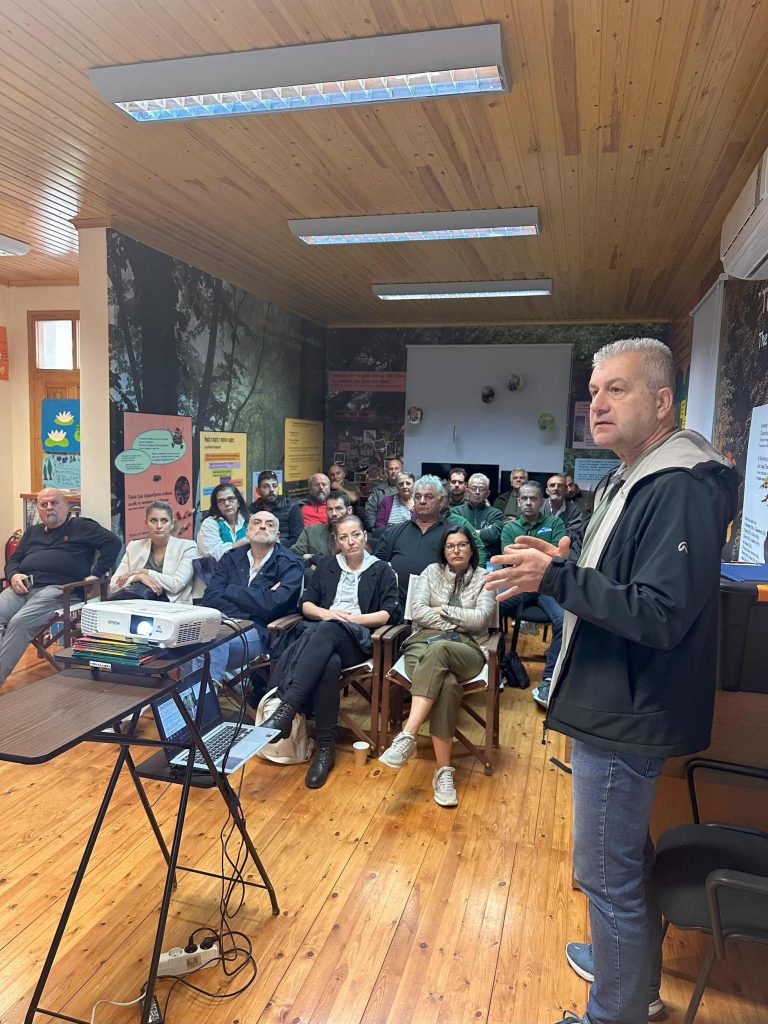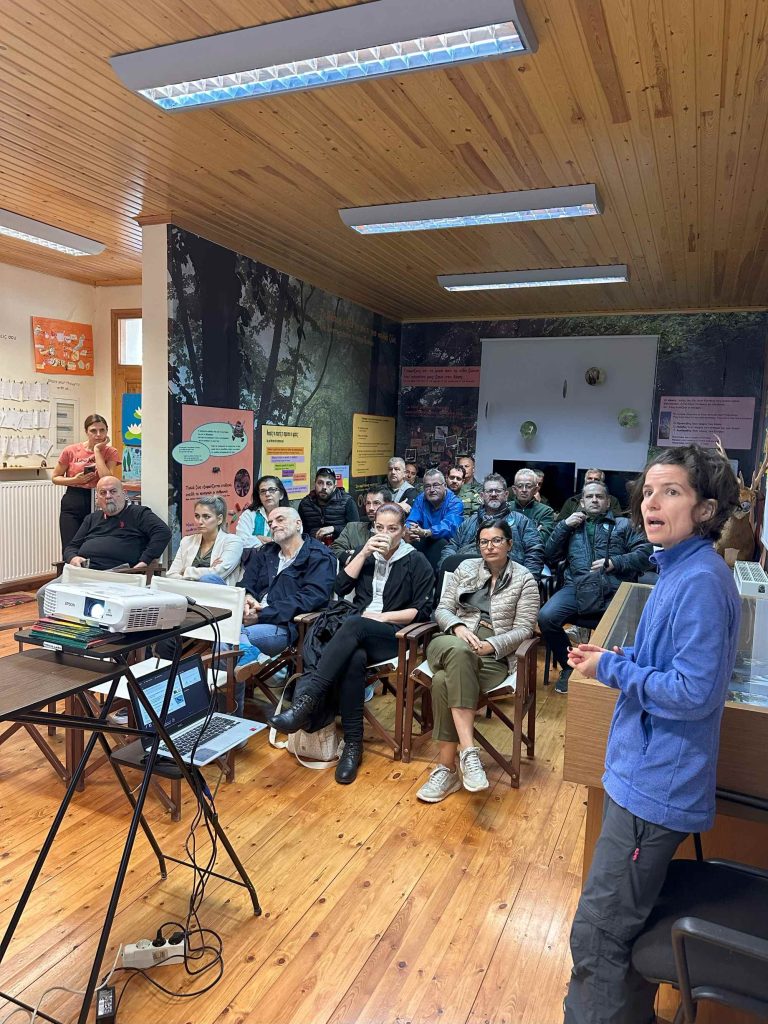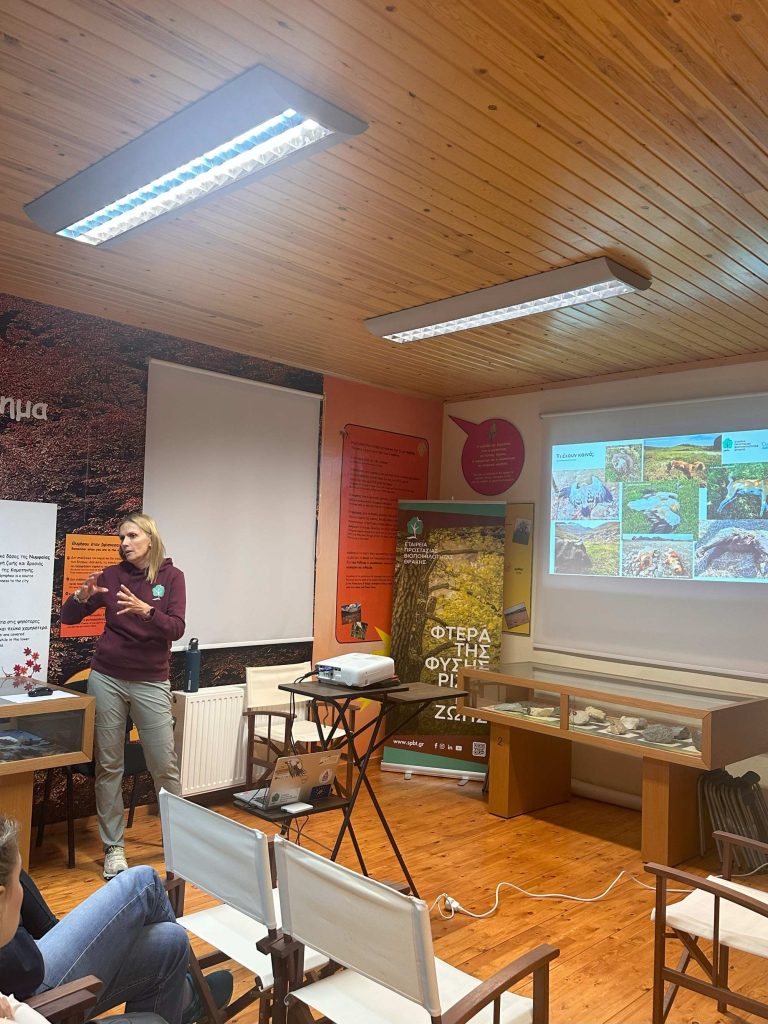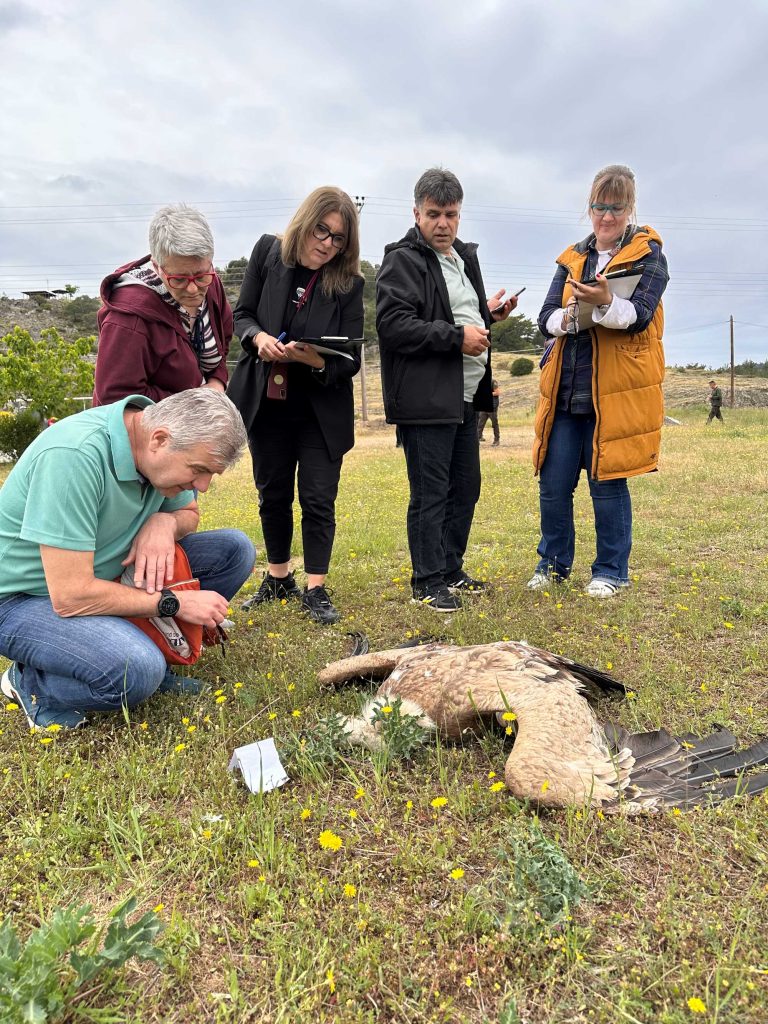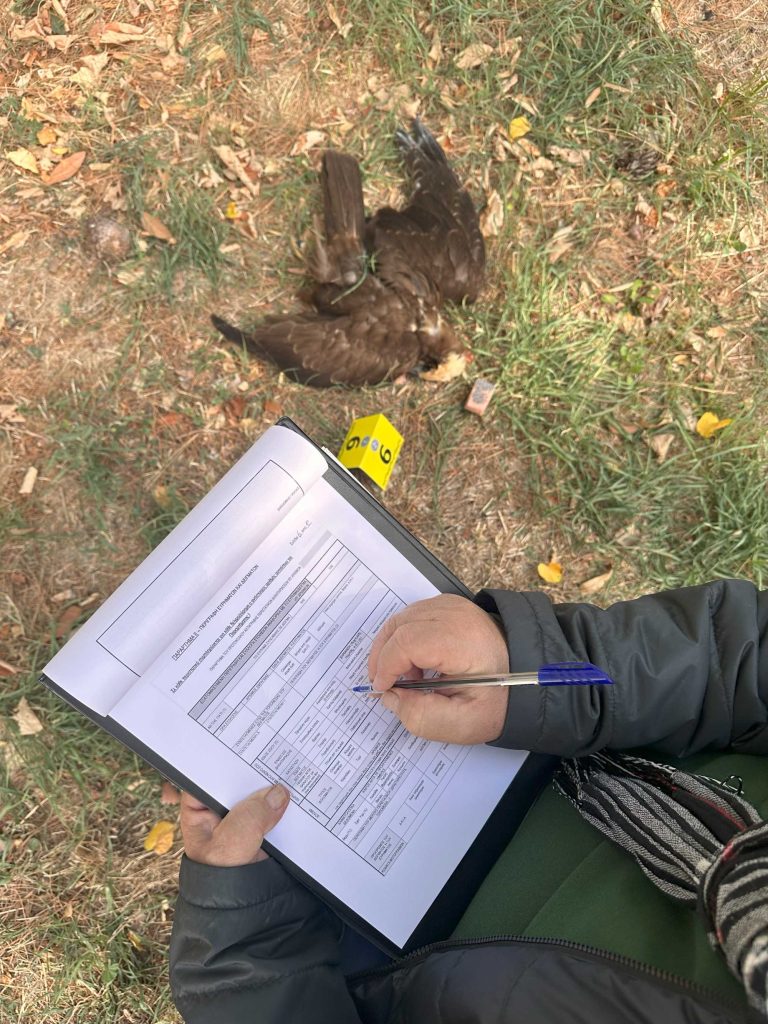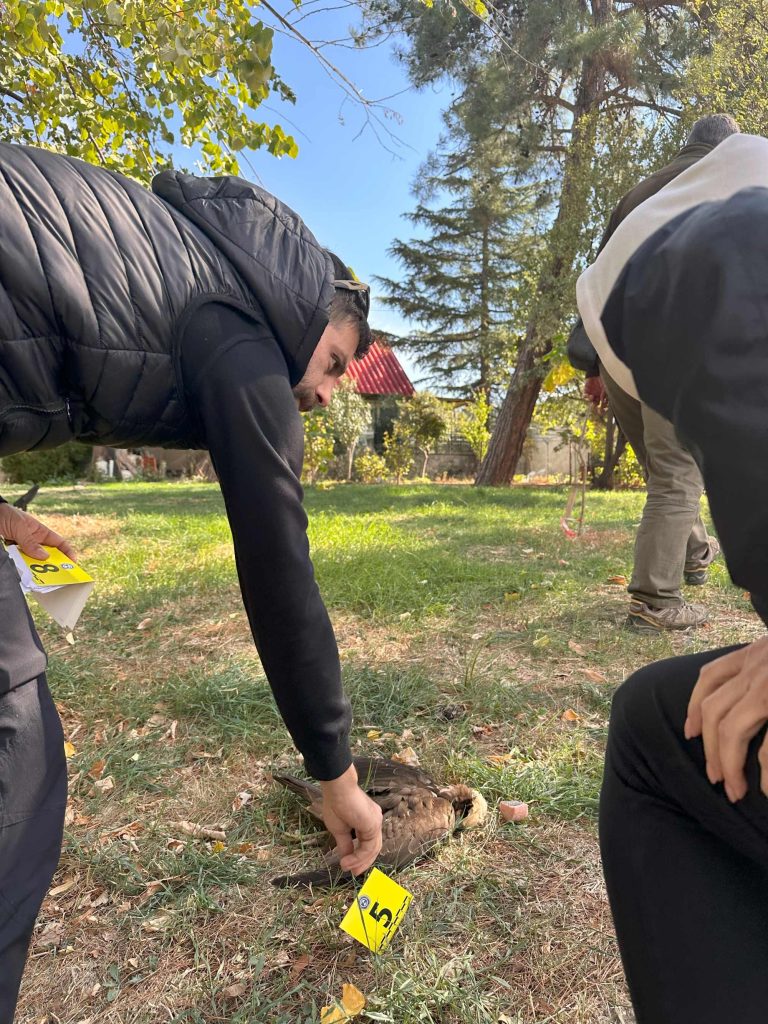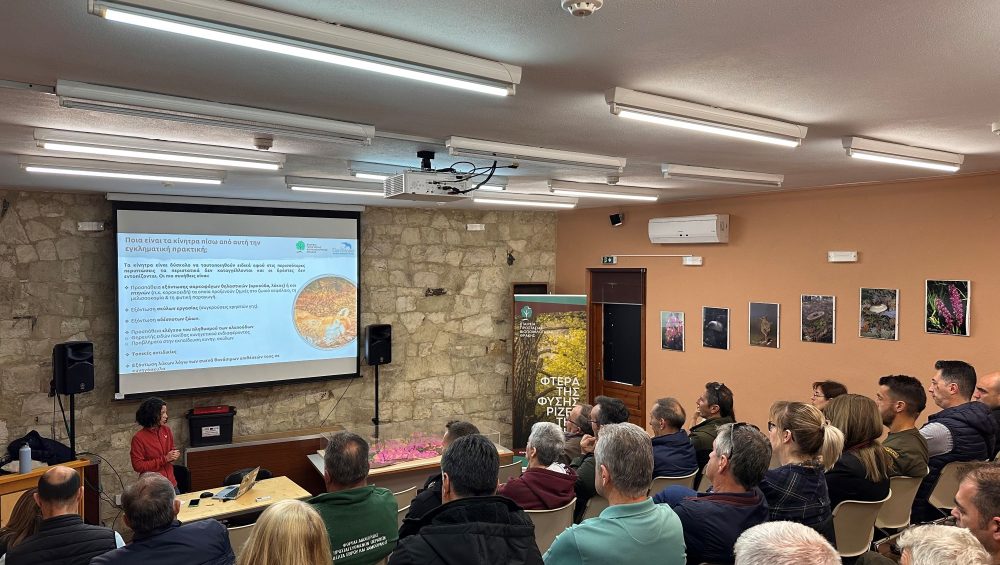Training seminars on proper poison incident investigation for relevant authorities in Evros and Rodopi Regional Units
The use of poison baits was prohibited 30 years ago, but unfortunately this illegal method is still very common in the Greek countryside causing a lot of deaths. This year, there was the largest poison incident recorded in Evros, where 47 victims were detected.To prevent such incidents in the future, there is a need of their proper investigation carried out by relevant authorities in order to document cases in the court.
Consequently, Society for the Protection of Biodiversity of Thrace along with Hellenic ORNITHOLOGICAL Society organized two training seminars for employees of forest services, police, management units of protected areas (NECCA) and hunting federation of Evros and Rodopi Regional Units. The seminars aimed in relevant authorities’ training for the effective investigation and management of poisoning incidents in the countryside that threaten rare species of wildlife, as well as domestic animals. The first, theoretical session was focused on proper poisoning incident identification based on crime scene investigation, systematic recording of illegal poisoning act evidence, using appropriate equipment for evidence collection, filling correct protocols and perpetrator investigating. Moreover, during the field exercises where two hypothetical poisoning incidents were reconstructed, the participants could unit theory with practice while applying their knowledge and known techniques in order to investigate the crime scene. The seminar speakers were administration officers as well as scientists from the two environmental organizations - the seminar organizers - with a long experience on poisoning incident management.
The seminars were conducted this year in May and October, in Dadia and Pandrosos, Komotini respectively, in the framework of the LIFE BalkanDetox cross-border project and the“Alliance for Wildlife”initiative, where a total of 67 participants participated from different competent services (scientific staff and rangers).
